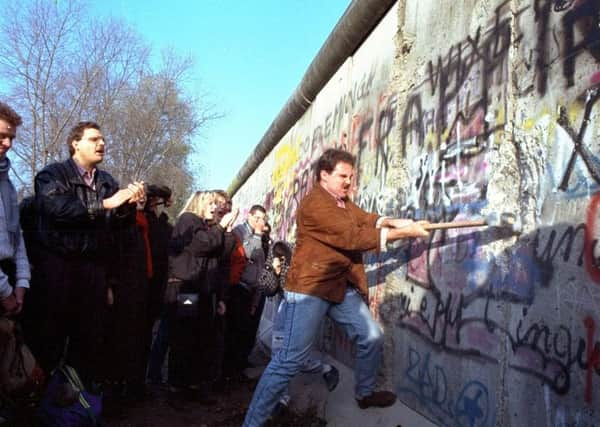Brexit builds borders that the World Wide Web broke – Kezia Dugdale


The whirring noise as AOL dialled up the internet is the defining sound of my 90s childhood, alongside Britpop and Chris Evans.
That clunky desktop computer of decades past, bought at great expense from Curry’s, had just one gigabyte of storage. I have 64 times that in the minicomputer that sits in the palm of my hand today – apparently, you can still phone people on it too.
Advertisement
Hide AdAdvertisement
Hide AdIt’s little coincidence that as the internet went up, the Berlin Wall came down. This was a new Europe where people were free to cross borders. Where progress was sought collectively by nations without under-cutting each other on employment rights or environmental standards. A growing economic powerhouse that could compete with the giants of China and America whether it looked east or west.
The computer in my hand knows no borders. Facebook has more than a billion users worldwide. The richest man in the world owns Amazon. 63,000 searches take place on Google every second. No government could hope to tame these companies or the innovations, which will evolve within them alone. Just as no government could hope to protect its citizens simply by itself when things go wrong.
The manipulation of elections, data breaches and identity theft. The explosion of self-employment through the gig economy, an epidemic of poor teen mental health. Not one of these issues respects a state line or national boundary. In the face of this stark reality, I remain baffled by those who believe the answers to our global problems are to build walls and turn inwards. To choose to become more insular and less influential.
Those free market capitalists who relish Brexit because they find the EU a turgid bureaucracy are slowly realising how hard it is to do business from the back of the queue. Far-left Lexiters who think the EU is a capitalist club which stops states owning their railways and utilities are slowly waking up to the decimation of the car industry as the tip of the iceberg known as the UK manufacturing base. Tariffs and borders are bad for wealth creation and the creators of that wealth, the workers. If the World Wide Web was for everyone – Brexit is for no one.
So begins a new political week, the drama of which we haven’t seen anything like since, well, last week. However, there is a pragmatic and popular solution available in the form of what’s called the Kyle-Wilson amendment, designed to empower the PM and the people.
It asks MPs to vote for Theresa May’s deal, the only deal signed off by the 27 nations of Europe, to pass through the House of Commons, which chucked it out last time at a rate of two to one, on the proviso that you, the people, have the final say in a ratifying referendum. A basic choice between staying put and leaving on the terms the Prime Minister has agreed. It’s such blindingly good common sense, it’s surely destined to fail. The political system feels broken now but we must not let that become a complete denunciation of the political class.
I believe that many of the people who will rescue us from this mess are the politicians putting the national interest before party interest, like Yvette Cooper and Nick Boles whose moves to extend Article 50 and create some desperately needed breathing space will likely pass this week. Like Andy Wightman and Joanna Cherry who used the law and the courts to prove the government wrong. Big people in an increasingly little Britain.